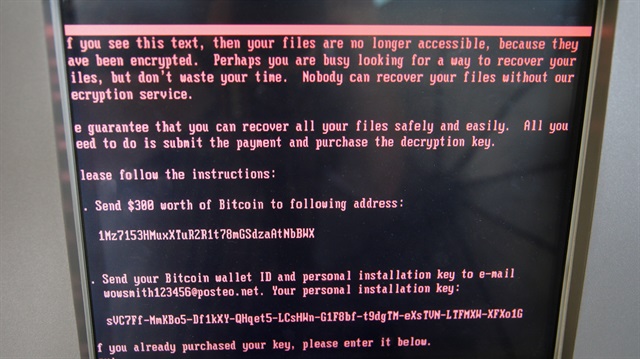
RUSSIAN CYBER POWER?
Though commonly known by the acronym GRU, which stands for the Main Intelligence Directorate, its name was formally changed in 2010 to the Main Directorate of the General Staff (or just GU). Its old acronym - GRU - is still more widely used.
It has agents across the globe and answers directly to the chief of the general staff and the Russian defence minister. The GRU does not comment publicly on its actions. Its structure, staff numbers and financing are Russian state secrets.
The GRU traces its history back to the times of Ivan the Terrible, though it was founded as the Registration Directorate in 1918 after the Bolshevik Revolution. Vladimir Lenin insisted on its independence from other secret services.
British Prime Minister Theresa May has said GRU officers used a nerve agent to try to kill former double agent Sergei Skripal, who was found unconscious in the English city of Salisbury in March. Russia has repeatedly denied the charges.
After the Skripal poisoning, the West agreed with Britain's assessment that Russian military intelligence was to blame and launched the biggest expulsion of Russian spies working under diplomatic cover since the height of the Cold War.
Russian President Vladimir Putin, himself a former KGB spy, said on Wednesday that Skripal, a GRU officer who betrayed dozens of agents to Britain's MI6 foreign spy service, was a "scumbag" who had betrayed Russia.
Britain said the GRU was associated with a host of hackers including APT 28, Fancy Bear, Sofacy, Pawnstorm, Sednit, CyberCaliphate, Cyber Berkut, Voodoo Bear and BlackEnergy Actors.
"This pattern of behaviour demonstrates their desire to operate without regard to international law or established norms and to do so with a feeling of impunity and without consequences," Foreign Secretary Hunt said.
The United States sanctioned GRU officers including its chief, Igor Korobov, in 2016 and 2018 for attempted interference in the 2016 U.S. election and cyber attacks.
Australia and New Zealand backed the United Kingdom's findings on the GRU.
"Cyberspace is not the Wild West. The International Community – including Russia – has agreed that international law and norms of responsible state behaviour apply in cyberspace," Australia's Prime Minister Scott Morrison said.
"By embarking on a pattern of malicious cyber behaviour, Russia has shown a total disregard for the agreements it helped to negotiate," Morrison said.


